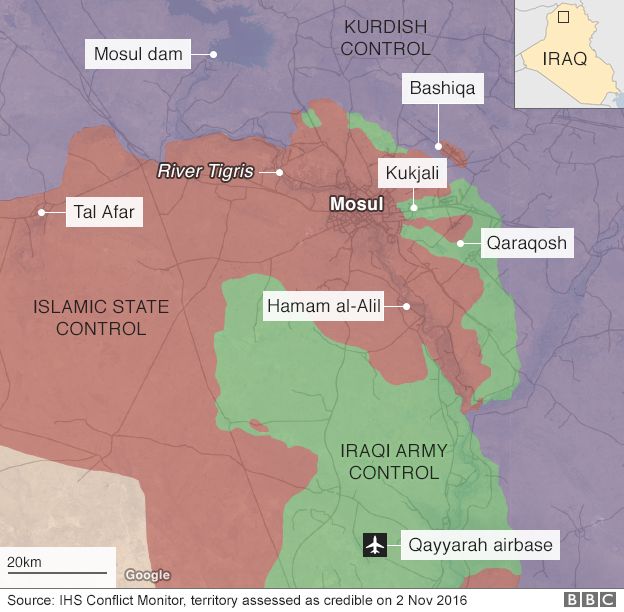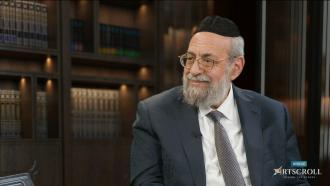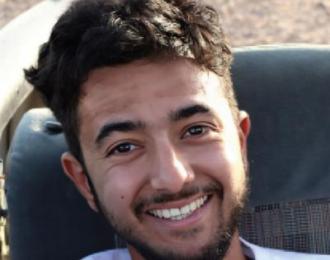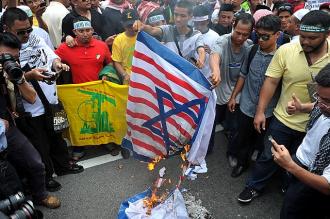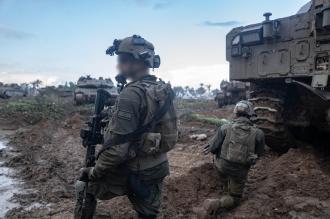The Islamic State (IS) group has released an audiotape which it says is from its leader, Abu Bakr al-Baghdadi, ordering Iraqis to defend the city of Mosul against the Iraqi army.
The recording has not been verified yet but analysts believe it is genuine.
Baghdadi's whereabouts are unknown. Some officials have said he may be inside Mosul alongside IS fighters.
It comes as Iraqi army forces continue their three-front advance on the city, the last IS stronghold in the country.
Mosul is where Baghdadi declared a caliphate two years ago.
Iraqi forces have already retaken dozens of villages and towns on the outskirts of the city, with the help of Kurdish Peshmerga forces, Shia Muslim militias and Sunni Arab tribesmen.
What did Baghdadi say? By BBC Monitoring
Baghdadi's rallying cry was timed to coincide with the entry of Iraqi forces into the outskirts of Mosul, at a critical moment for the group.
Some of his comments appeared to betray concerns that military pressure on the group in Mosul might lead to a broader erosion of support.
He called on his fighters to obey their leaders, warned Iraqi Sunnis of the consequences of turning against IS and appealed to IS's far flung outposts to stay loyal to the group - from Indonesia to West Africa.
Baghdadi rarely speaks publicly, but the last time he did so - in December last year - he delivered a similar mix of defiant insistence on ultimate victory combined with implicit acknowledgment of setbacks on the ground.
Abu Bakr al-Baghdadi, whose real name is Ibrahim Awwad Ibrahim al-Badri, was born in 1971 to a lower-middle class Sunni Muslim family in Samarra, Iraq.
He had a passion for Koranic recitation and was nicknamed "the Believer" for chastising his relatives for failing to live up to his stringent standards.
After pursuing his religious interests at university, Baghdadi gravitated towards the violent ultra-conservatives in the Muslim Brotherhood.
By the year 2000, he had embraced Salafist jihadism and went on to found the insurgent group Jaysh Ahl al-Sunnah wa al-Jamaah after the US-led invasion of Iraq in 2003.
After a year in prison, Baghdadi travelled to Damascus to take control of propaganda for al-Qaeda in Iraq (AQI). The group would later be dissolved, in place of Islamic State in Iraq (ISI) - the former name for IS.
Baghdadi quickly rose through the ranks mainly due to his ability to bridge the gaps between the foreigners who founded the group and local Iraqis who joined later.
Will IS fighters stay or go? By Ian Pannell, BBC News, Irbil
The military plan is to hold ground, clear houses and make it safe as the Iraqi army looks for pockets of IS fighters. They know there are secret tunnels and rat runs between houses and there are IS fighters still in the outlying areas of the city. These fighters are willing to stand and die for their cause and that makes for a very, very tough enemy.
There will be IS fighters trying to get out of the city westwards because that leads to Raqqa, the last potential remaining IS stronghold if and when Mosul falls.
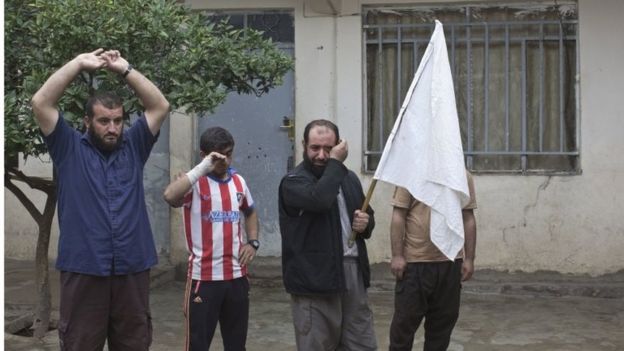 APEmotional residents raise a white flag as Iraqi soldiers search their home in Kukjali, in the east
APEmotional residents raise a white flag as Iraqi soldiers search their home in Kukjali, in the east
Commanders in Iraq's counter-terrorism forces say some of the IS leadership has already left Mosul. There are likely to be a lot of fellow travellers on the same route - people who were perhaps pleased to see IS fighters enter Mosul in the first place because of poor relations and treatment by some of the government forces who had been in control.
There are also many foreign fighters who have nowhere else to go and who will stand and fight to the death.
How is the advance going?
Army units captured a number of villages south-west of Mosul on Thursday, as clashes were reported to the east of the city in the Karama district.
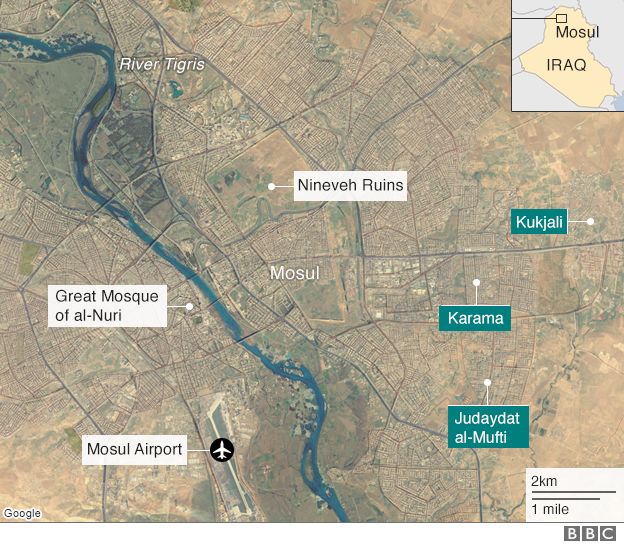
A day earlier they were combing the streets for any remaining IS fighters in the recaptured Kukjali district, also in the east.
Meanwhile, Shia Popular Mobilisation Units are focusing their efforts on retaking Tal Afar, a town to the west of Mosul which lies on the IS supply line between the city and the militants' Syrian stronghold, Raqqa.
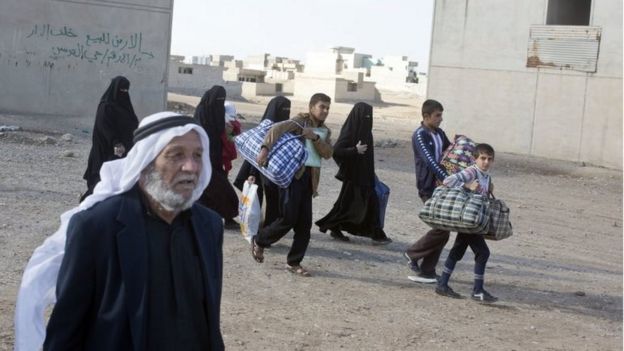 APSome civilians have been returning to the district after being displaced by the fighting
APSome civilians have been returning to the district after being displaced by the fighting
Amnesty International said on Wednesday people suspected of having ties to IS have been beaten, given electric shocks or dragged through the streets by cars as areas on the outskirts of Mosul were retaken by Sunni tribal militia fighters, according to eyewitnesses on the ground.
There are also concerns for the estimated 1.2 million civilians who remain inside the city, with the Norwegian Refugee Council warning that their lives are in "grave danger" because of the fighting.
Some have fled to a camp for internally displaced people, east of Mosul.
